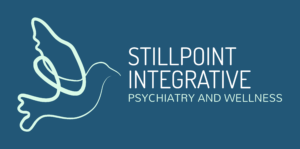Omega-3 Fatty Acids: A Natural Boost for Mental Health and Well-Being
In today’s fast-paced world, many people are seeking natural and effective ways to support their mental health. Among the most well-researched and impactful nutrients are omega-3 fatty acids, essential fats that play a crucial role in overall health and well-being. In this article, we’ll explore what omega-3s are, their mental health benefits, and how you can incorporate them into your life.
What Are Omega-3 Fatty Acids?
Omega-3 fatty acids are a type of essential fat, meaning our bodies cannot produce them—we must obtain them through food or supplements. There are three main types of omega-3s:
- EPA (eicosapentaenoic acid): Found in fatty fish and marine-based supplements.
- DHA (docosahexaenoic acid): Found alongside EPA in fish and algae, critical for brain and eye health.
- ALA (alpha-linolenic acid): Found in plant-based sources like flaxseeds, chia seeds, and walnuts; the body converts it into EPA and DHA, but at a limited rate.
Benefits of Omega-3s for Physical Health
Omega-3s are well-known for their cardiovascular benefits, helping to reduce inflammation, lower blood pressure, and improve cholesterol levels. They also support eye health and are crucial for brain development, making them a key nutrient throughout life.
Omega-3s and Mental Health
Emerging research has shown that omega-3s are not just vital for physical health—they are also a powerful ally for mental well-being.
Numerous studies have demonstrated the efficacy of omega-3 fatty acids in supporting mental health. A meta-analysis published in the Journal of Affective Disorders found that omega-3 fatty acid supplementation significantly reduced symptoms of depression. Another study published in the Journal of Clinical Psychopharmacology found that omega-3 fatty acid supplementation reduced symptoms of anxiety in individuals with chronic anxiety.
1. Anxiety Relief
Studies suggest that omega-3s, particularly EPA, can reduce symptoms of anxiety by lowering inflammation and supporting the brain’s chemical balance. A study published in the Journal of Clinical Psychopharmacology found that omega-3 fatty acid supplementation reduced symptoms of anxiety in individuals with chronic anxiety. Therefore, individuals with high levels of stress often benefit from increased omega-3 intake.
2. Depression Support
Omega-3s have shown promise in alleviating symptoms of depression. EPA and DHA are thought to support serotonin production, a neurotransmitter critical for mood regulation. A meta-analysis published in the Journal of Affective Disorders found that omega-3 fatty acid supplementation significantly reduced symptoms of depression. Research also indicates that individuals with depression often have lower omega-3 levels.
3. Other Mental Health Applications
- ADHD: Omega-3s may improve attention and reduce hyperactivity in children and adults.
- Bipolar Disorder: Supplementation may help stabilize mood swings.
- PTSD: Preliminary studies suggest potential benefits in reducing trauma-related symptoms.
How to Include Omega-3s in Your Diet
Incorporating omega-3s is easier than you might think. Here are some natural sources:
- Fatty Fish: Salmon, mackerel, sardines, and tuna are rich in EPA and DHA.
- Plant-Based Options: Flaxseeds, chia seeds, and walnuts provide ALA.
- Fortified Foods: Look for eggs, dairy, or bread enriched with omega-3s.
If your diet lacks omega-3-rich foods, supplements can help fill the gap. Fish oil and algal oil (for vegetarians) are excellent options.
Tips for Choosing the Right Omega-3 Supplement
To ensure quality and effectiveness:
- Look for third-party testing certifications to confirm purity and potency.
- Choose a supplement with at least 1000 mg of combined EPA and DHA daily.
- Opt for triglyceride-based forms for better absorption.
Supporting Mental Health in Harrisonburg, VA
At Stillpoint Integrative Psychiatry and Wellness, we understand that mental health is deeply connected to physical health. For our Harrisonburg community, we can help you explore how natural treatments, including omega-3 supplementation, may be crucial yet overlooked elements to your mental and physical wellbeing.
Conclusion
Omega-3 fatty acids are a simple yet powerful tool to support mental health and overall wellness. Whether you’re seeking relief from anxiety, support for depression, or enhanced brain health, omega-3s can be a valuable part of your self-care routine.
Are you ready to take the next step in prioritizing your mental health naturally? Contact Stillpoint Integrative Psychiatry and Wellness today for personalized guidance and care.
